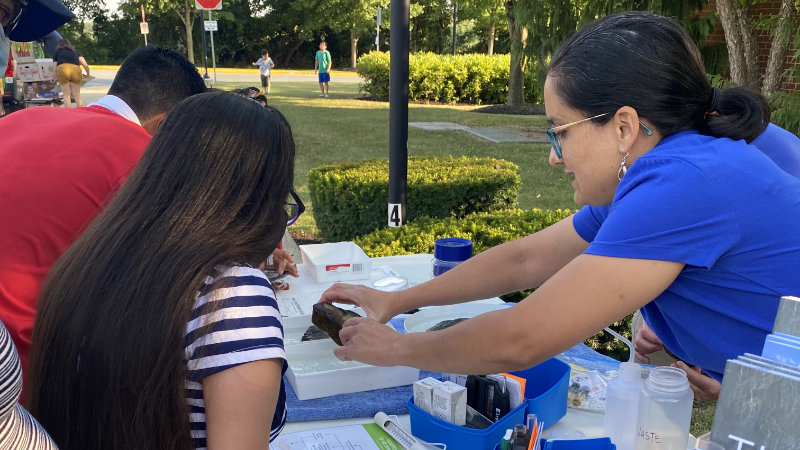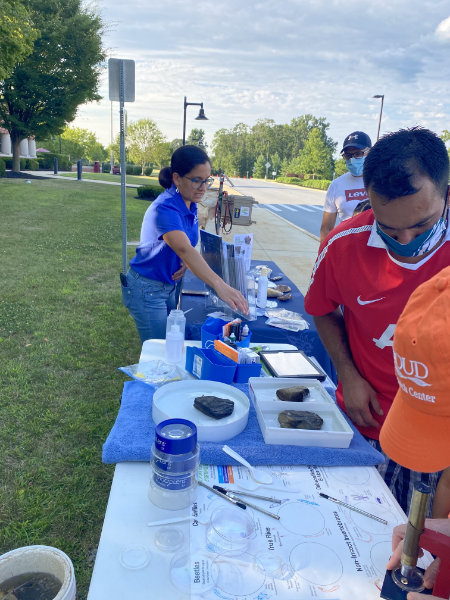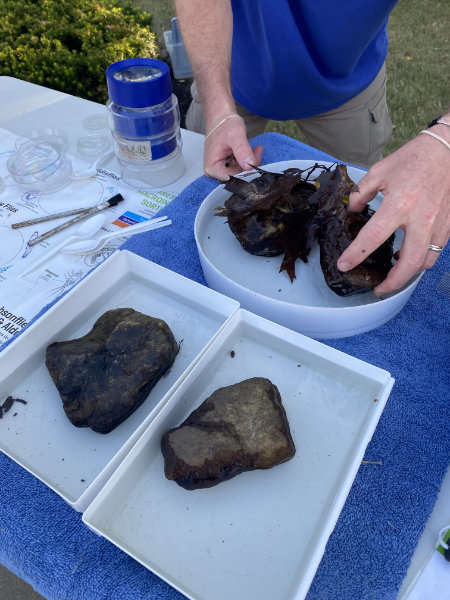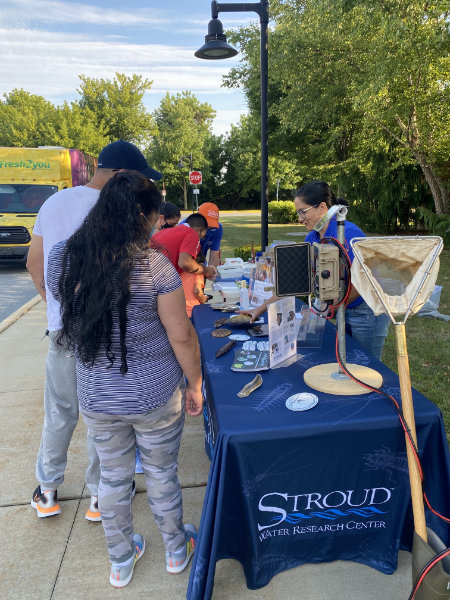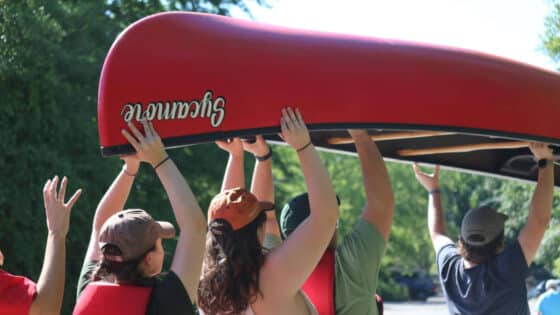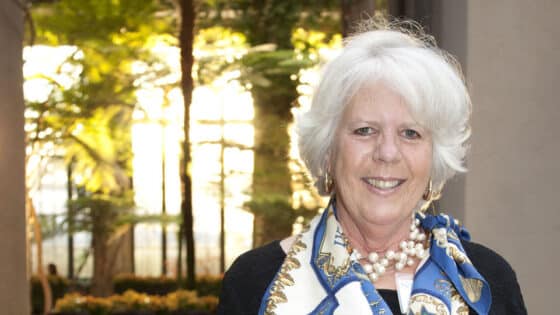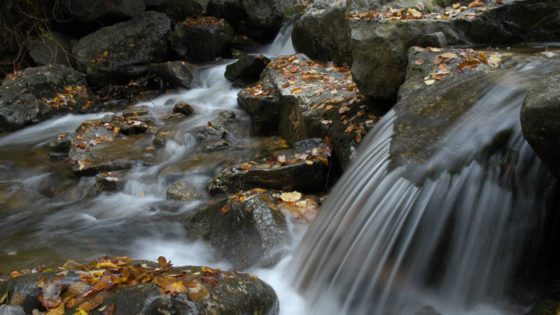Stroud™ Water Research Center educators made a splash (well, virtually anyway) this summer with the Migrant Education Summer Camp at the Technical College High School Pennock’s Bridge Campus in Chester County, Pennsylvania. Students participated in an online watershed expedition to learn more about their local watersheds, conduct a stream study at a local park, identify issues in their watershed, and develop potential solutions to address the issues they discovered.
This watershed STEM (science, technology, engineering, and mathematics) program by the Stroud Center through an eeBLUE grant seeks to develop students’ environmental literacy and leadership skills as they improve their communities.
With support from the U.S. Department of Education, eeBLUE — a collaboration between the North American Association for Environmental Education and the National Oceanic and Atmospheric Administration — was able to award $2.45 million to 30 environmental education organizations to provide enriching watershed-related STEM programs at 100 Nita M. Lowey 21st Century Community Learning Centers (CCLCs) throughout the United States.
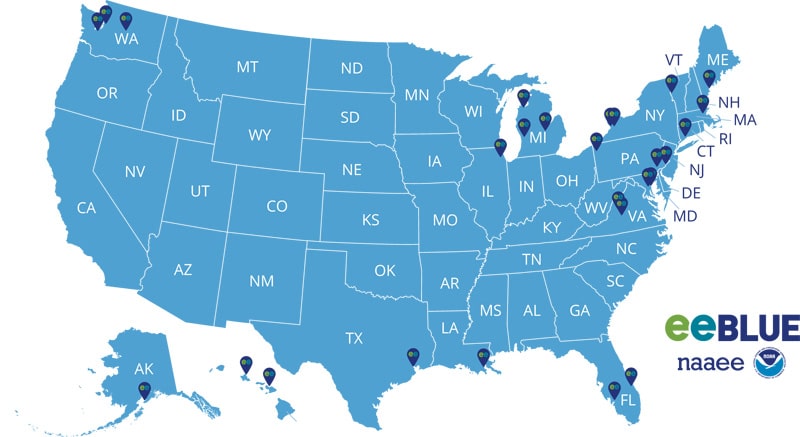
Participants ranged from sixth through 12th grade and were primarily English language learners, many of whom speak Mayan dialects and are learning Spanish to learn English. Stroud Center Assistant Research Scientist Diana Oviedo Vargas, Ph.D., who is a native Spanish speaker from Costa Rica, assisted in the delivery of the chemistry stream study activity.
“We were really excited and honored to be awarded an eeBLUE grant,” said project manager David Kline, a watershed education specialist at the Stroud Center. “This is an incredible opportunity to engage students who live in high-poverty and underserved areas in meaningful, place-based, watershed learning and inspire the next generation of stewards of our communities and environment.”
“Our goal was to take participants outside and open their eyes and minds to the hidden jewels of our watersheds,” said Kline, “but the COVID-19 pandemic threw a monkey wrench into the mix that forced the entire grant program to pivot and recreate outdoor learning experiences in a virtual environment.”
So Stroud Center educators spent the first year piloting online activities in outside-of-school and summer camp sites in Coatesville, Oxford, and Avon Grove. “While virtual activities were not part of the original plan,” said Kline, “we were able to test some new approaches for traditionally in-person activities and develop some new tools to improve the experience for the participants.” Some of the pilot activities went really well, while others really fell flat. One adaptation that was very effective was incorporating videos of local waterways. Participants were much more engaged when they saw locations in their community that they recognized and had visited in person.
This summer’s program focused on a stretch of the east branch of White Clay Creek (just a few miles downstream from the Stroud Center) that flows along a local park in Avondale. Kline and Mandy Nix, also a watershed education specialist at the Stroud Center, spent hours filming the location to provide images and videos of the park, the water in the stream, and the critters that call this creek home. They filmed a complete assessment of the stream that included habitat, chemical, physical, and biological assessments.
“We know the water quality of the east branch of White Clay Creek is excellent around the Stroud Center, but it was interesting to compare our results of a stream study just a few miles downstream,” said Kline. The overall water quality was still good, but deterioration was noted, including a reduction in the number of species of macroinvertebrates and the presence of materials dumped by humans (both large items and litter).
As the summer camp program progressed, the participants learned more about watersheds and the impacts that humans can have on streams, both good and bad. The main issue the students discovered was the amount of litter that occurs at James Watson Memorial Park on a regular basis.
Students in the summer camp helped to brainstorm ideas on how to prevent littering and encourage all citizens to make a difference in their communities.
The highlight of the program came after the last session ended. The Stroud Center accepted an invitation to participate in a Parents and Family Open House at the Pennock’s Bridge Campus. Kline and Oveido-Vargas were on hand to showcase the programs and tools that scientists use to monitor water quality in creeks and rivers. “We had two tables, an EnviroDIY Monitoring Station, chemical testing kits, and live macroinvertebrates from a local creek,” said Kline. “The families were blown away when they saw the macros move and were able to see details through microscopes, such as a mayfly wiggling its abdominal gills to increase dissolved oxygen intake.”
“We are looking forward to the opportunity to host in-person programs with our partner sites in the next year and return to in-person outdoor learning experiences rather than virtual recreations,” said Kline.
